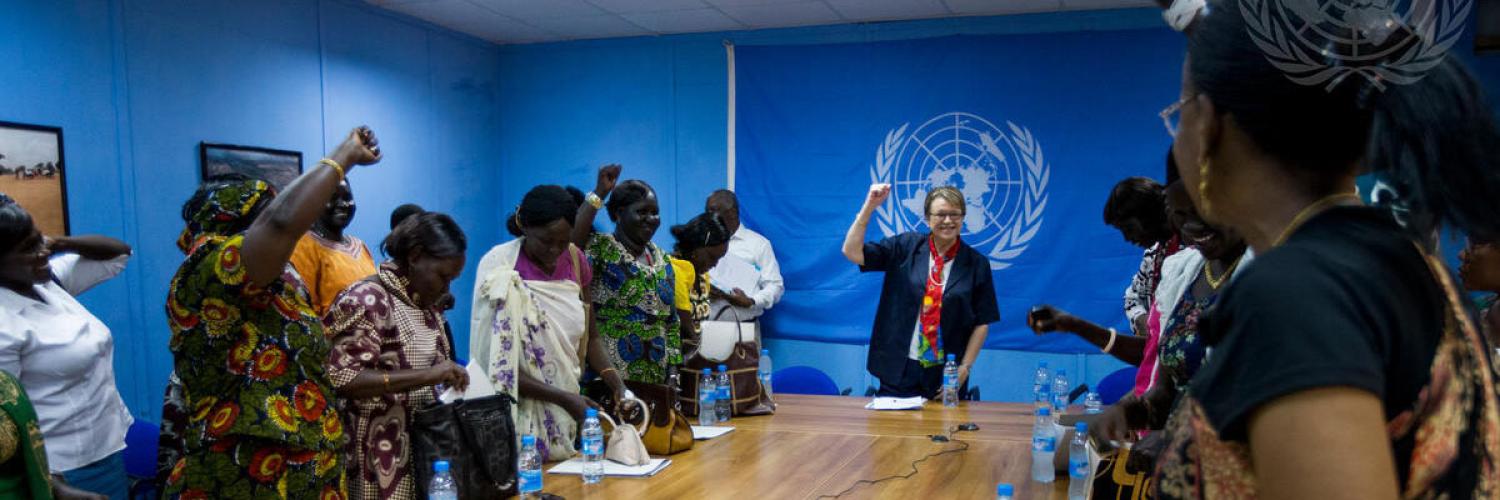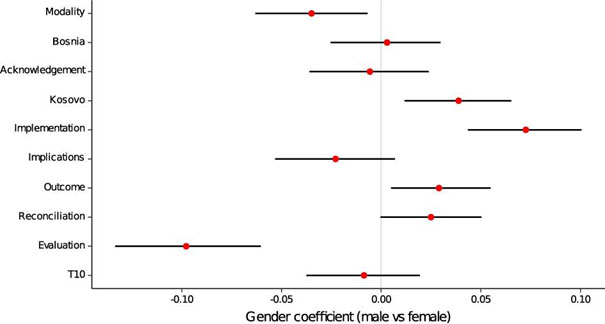
Gender-based differences in discourse during peacemaking perpetuate marginalization of women’s needs and concerns.
Key Policy Findings
There has been considerable academic and policy focus on representation - increasing the number of women ‘at the table’ in peacemaking processes, and counting ‘provisions of peace agreements that refer to women’. This study shows that discourse also matters. It examines post-conflict justice debates to identify how men and women contribute to such debates, and finds that differences in their contributions lead to peacemaking outcomes that perpetuate gender inequalities and that are not responsive to women’s experience of conflict and conflict-related concerns.
The authors examine the gendered patterns of microlevel speaking behaviour of men and women in transitional justice debates. They employ statistical and quantitative text analyses using a data corpus of over half a million words from transcripts of a civil society-led transitional justice process in the Balkans between 2010 and 2011. They find that male dominance in communication offsets any benefits to women’s proportional representation and thereby limits women’s substantive influence over peacemaking outcomes:
- Although women take the floor almost as often as men and speak roughly as much as their male counterparts, men dominate the peacemaking discourse via turn-taking: sequences of speeches delivered by women are on average 38% shorter than men’s. Women are, thus, not emboldened to repeatedly take the floor to voice and sustain lines of argumentation that reflect their concerns.
- Furthermore, when women do take the floor, they de-centre, i.e. they talk less about their individual, conflict-related experiences, while putting the interests of others, e.g. the disabled, before their own within their focus on broader issues of justice. In contrast, men are more concerned with specific technical and political aspects of transitional justice and its effective implementation (see Figure 1).
- As a result of these gendered differences in communication, women’s substantive influence over peacemaking outcomes remains limited. Because male speakers follow other male speakers in greater numbers more often, and because women are more likely to talk about issues that centre away from their own concerns, peacemaking outcomes that ignore women’s needs are (re-)produced.
To improve women’s substantive representation in peacemaking and achieve gender-sensitive outcomes that can ultimately lead to gender-just peace, the authors point to the important role of moderators in mixed-sex meetings during peacemaking to ensure that women are given deliberative space that allows them to express their needs and concerns. Recognising that gendered dynamics in peacemaking processes, such as men’s domination of speaking turns, can substantively impede the achievement of gender equality in peacemaking is an important finding that can help explain women’s limited influence over peacemaking outcomes despite recent progress in narrowing the gap between men’s and women's ‘bodies at the table’.
Policy summary prepared by Evgenija Kroeker.
Figure 1: Effect of gender on likelihood of issues mentioned in a civil society-led
transitional justice discourse in the Balkans, 2010-2011

Note: Estimates from structural topic model (STM) with 10 topics are shown. Issues that are more likely to be raised by women appear on the left, while issues addressed by men appear on the right.


